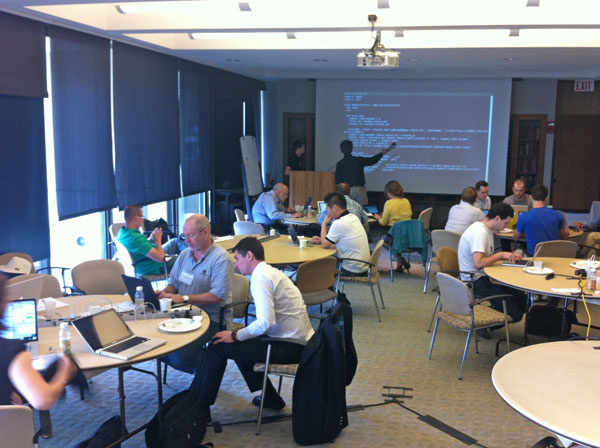A key topic at this year’s Indivo Users’ Conference was the release of version 2.0, which provides “deep integration with the SMART data models and API.” In other words, the Indivo personal health platform is now a full-fledged SMART container. Visit the Indivo site to learn more about
- What SMART adds to Indivo
- What Indivo adds to SMART
- The SMART-Indivo Portal
Conference presentations included a keynote from Farzad Mostashari, National Coordinator of HIT, ONC; Indivo–SMART integration by Daniel Haas, Indivo Lead Architect; the SMART API by Nikolai Schwertner, Senior SMART Developer; Indivo–i2b2 integration by Shawn Murphy, Partners HealthCare; Indivo iOS framework by Pascal Pfiffner, Children’s Hospital Informatics Program; and lightning talks from the MIT Media Lab, Novartis, Childhood Arthritis & Rheumatology Research Alliance, and MuleSoft.
Ken Mandl also premiered the new Indivo Film, an animated “story of what’s to come” in Health IT, voiced by Amy Madigan.

You must be logged in to post a comment.